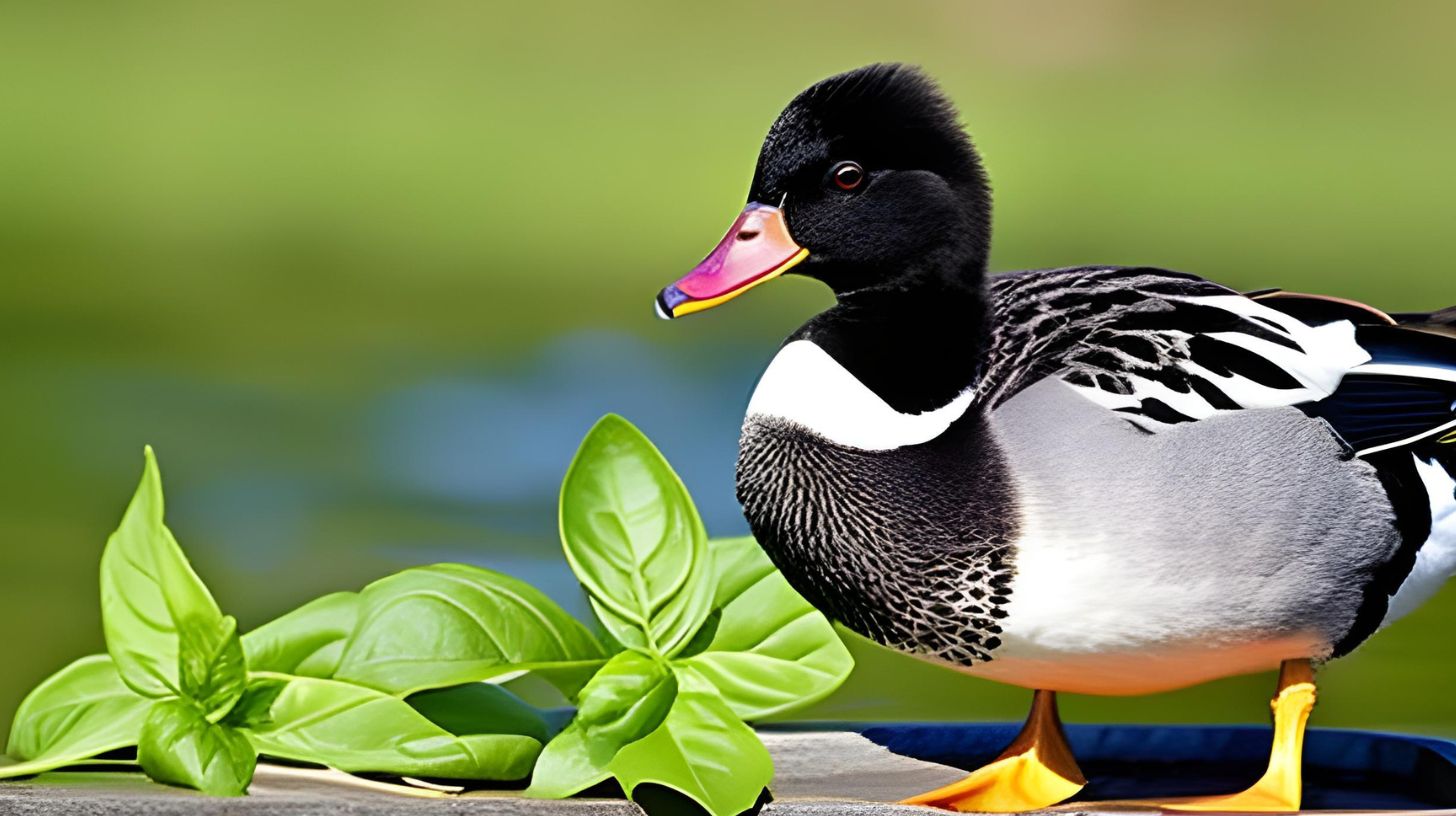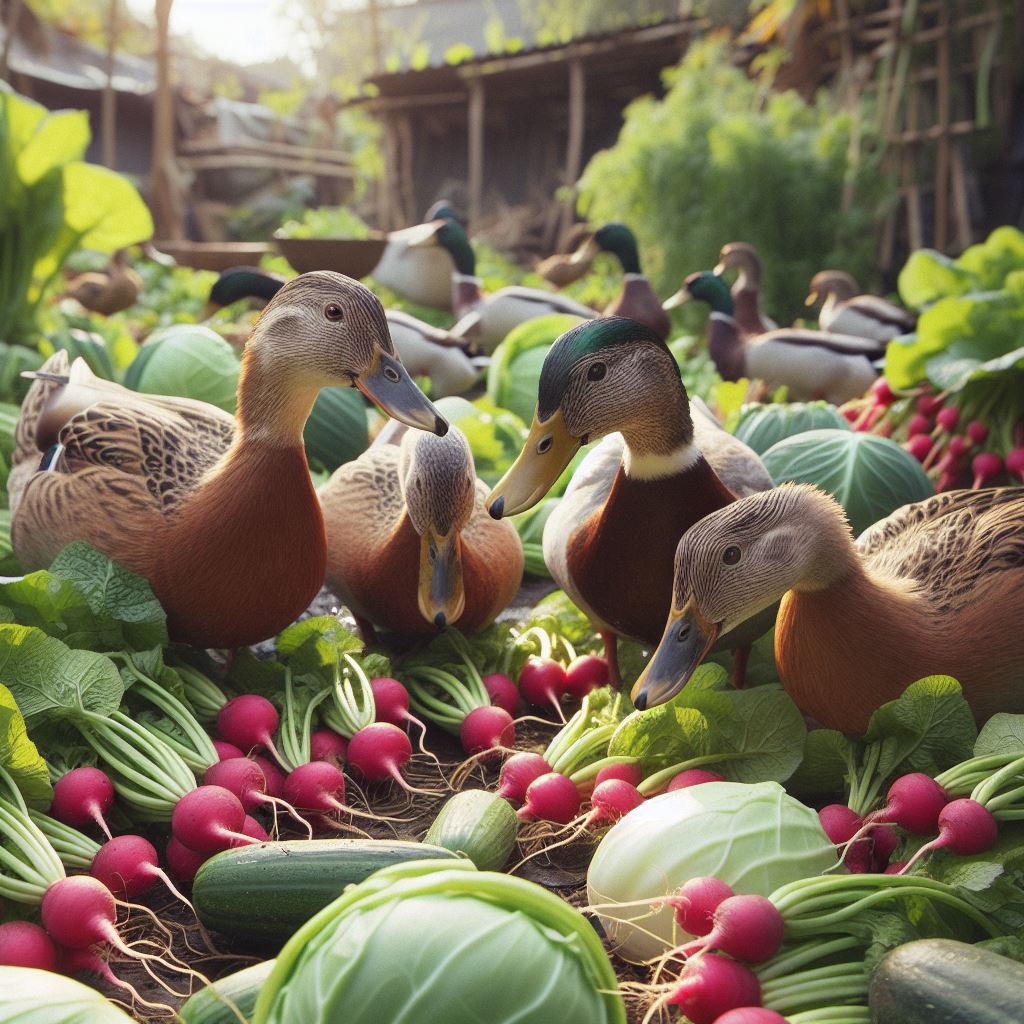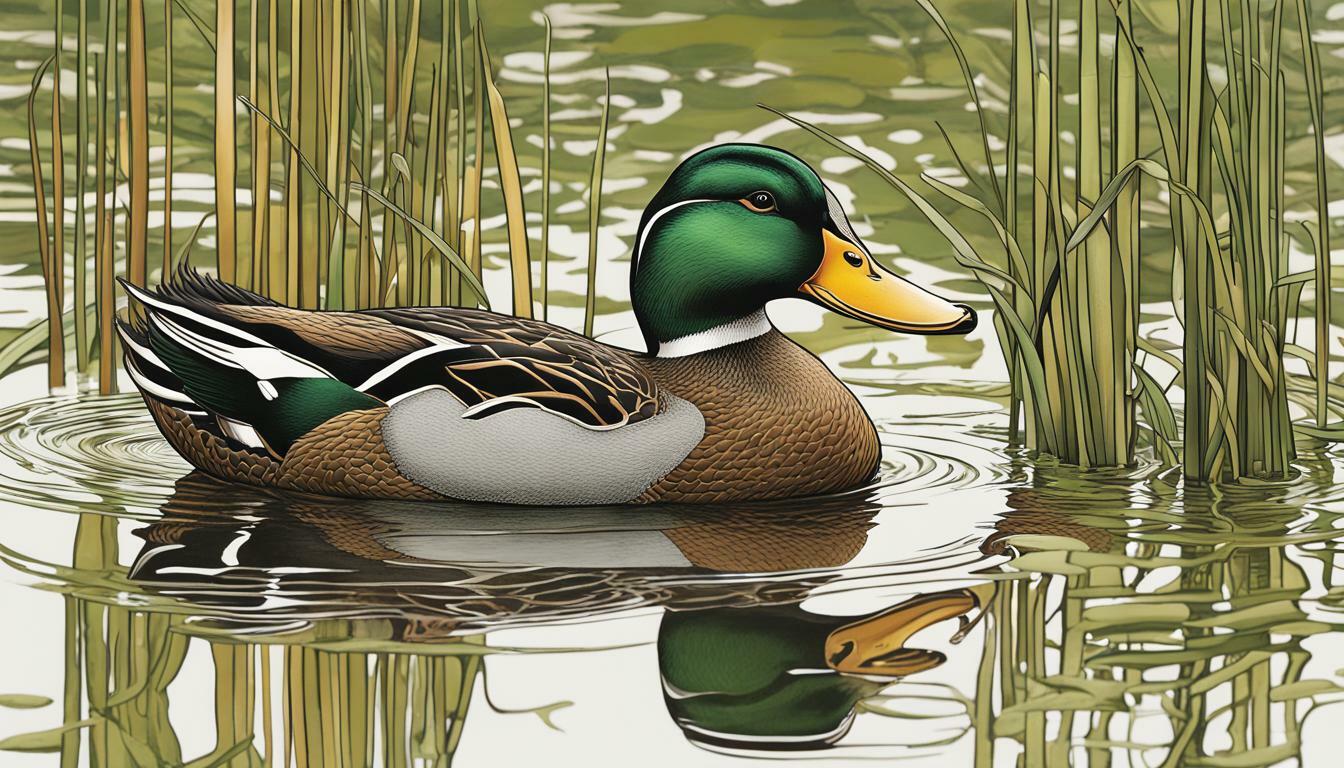Can Ducks Eat Basil Leaves?

Table of content:
- Yes, Ducks Can Safely Eat Basil
- Nutritional Value of Basil for Ducks
- How Much Basil to Feed Ducks
- How to Prepare Basil for Ducks
- Can Ducks Eat Basil Flowers or Stems?
- Benefits of Basil for Pet Duck Health
- Monitoring Ducks After Eating Basil
- Can Wild Ducks Eat Basil?
- Alternative Herbs and Greens for Ducks
- FAQ about Ducks and Basil
- Basil in Moderation Benefits Ducks
Ducks are fun, quirky birds that bring joy to backyard ponds and parks. With their constant foraging and curious nature, you may wonder what foods are safe and healthy to feed ducks. One common question many duck owners have is: can ducks eat basil?
Basil is an aromatic herb that grows easily outdoors and makes a tasty addition to our own diets. When ducks are nearby while we garden, they tend to nibble on various plants. So can our web-footed, feathered friends enjoy basil too?
Yes, Ducks Can Safely Eat Basil
The good news is ducks can eat basil leaves without issue. Basil is not toxic or harmful to ducks. In fact, fresh basil may offer some nutritional benefits. Ducks are omnivores, meaning they enjoy diverse foods like seeds, aquatic plants, insects, small fish, and some fruits and veggies. As plant-eaters, ducks can digest leafy greens, making basil an acceptable addition to their menu.
Nutritional Value of Basil for Ducks
Here’s a closer look at the key nutrients ducks gain from fresh basil:
- Vitamin A – Supports eye health and immune function in ducks.
- Vitamin K – Important for blood clotting and bone strength.
- Vitamin C – Boosts collagen production and immune defenses.
- Calcium – Needed for bone, egg shell, and muscle growth.
- Iron – Helps ducks produce red blood cells and oxygenation.
- Antioxidants – Reduce oxidative damage and inflammation.
Research also shows basil contains compounds like eugenol, rosmarinic acid, and flavonoids that provide:
- Anti-inflammatory effects – May improve gut health and digestion.
- Antibacterial properties – Could protect ducks from harmful bacteria.
So in small amounts, fresh basil makes a healthy supplemental food for pet ducks or wild waterfowl. It gives them antioxidants, vitamins, and anti-inflammatory compounds their bodies can utilize.
How Much Basil to Feed Ducks
When adding fresh basil to your ducks’ diet, follow these tips:
- Start with just 2-3 rinsed leaves, 1-2 times per week.
- Gradually work up to 5-6 leaves per feeding, 2 times weekly at most.
- Chop or tear leaves into smaller pieces for easier eating.
- Mix into duck feed or serve basil leaves on their own.
- Provide plenty of fresh water to help digestion.
- Watch ducks’ droppings for any changes indicating too much.
- Remove basil if any signs of irritation or allergy occur.
Following the motto “moderation is key” allows ducks to gain benefits from nutritious basil without risk.
How to Prepare Basil for Ducks
Before serving fresh basil, be sure to:
- Rinse leaves thoroughly under cool water.
- Check for dirt or debris like bugs.
- Gently pat leaves dry with a towel or paper towel.
- Remove any wilted or damaged leaves.
- Use scissors to cut larger leaves into bite-size pieces.
Washing basil helps remove potential pesticides, dirt, and microbes from the surface. Cutting leaves makes it simpler for ducks to eat.
Can Ducks Eat Basil Flowers or Stems?
The leaves of the basil plant offer the most nutrients. But ducks can also nibble on:
- Flowers – Contain the same oils as leaves. Rinse well and remove stamens.
- Stems – High in fiber but lower nutrients than leaves. Tender tips are best.
Avoid giving ducks large stalks or woody stems, as they are hard to chew and digest. Focus mostly on the leaves for optimal benefits.
Benefits of Basil for Pet Duck Health
Here are some of the key ways basil may support duck health:
- Supports digestion – The anti-inflammatory oils in basil help soothe the gut. Fiber aids digestion.
- Boosts immunity – Antioxidants and vitamin C promote immune function.
- Promotes alertness – Nutrients like iron transport oxygen for energy.
- Reduces inflammation – Compounds in basil have natural anti-inflammatory effects.
- Supports bone strength – Vitamin K helps build healthy bone density.
The small bioactive compounds unique to basil make it more beneficial than standard greens. Feed ducks a few fresh leaves to let them gain these perks.
Monitoring Ducks After Eating Basil
When first offering basil, keep an eye out for:
- Changes in droppings – looseness indicates too much.
- Allergic reactions – swelling, rashes, or irritation around the mouth.
- Disinterest – ducks will avoid foods that upset their digestion.
- Over-consumption – gorging can lead to stomach upset.
Adjust portion sizes down if ducks show sensitivity. Provide plenty of water to help flush their systems.
Can Wild Ducks Eat Basil?
Backyard ducks aren’t the only ones who can eat basil! Wild ducks and waterfowl also enjoy fresh herb greens. Just like pets, wild ducks gain benefits from the vitamins, antioxidants, and anti-inflammatory effects of basil.
If your garden basil attracts neighborhood mallards and migrating ducks passing through, leaves are fair game. This outdoor herb is natural and healthy compared to bread or junk food some feed wild ducks.
Be cautious of pesticides if you want to intentionally offer basil to wild fowl. And rinse leaves to remove any outdoor contaminants like fungi or bacteria.
Alternative Herbs and Greens for Ducks
While basil makes a tasty, nutritious treat, ducks can also eat other herbs in moderation, such as:
- Parsley
- Dill
- Cilantro
- Fennel
- Mint
Rotate different fresh herbs to give ducks variety. Chard, kale, lettuce, and other leafy greens are also suitable. Ducks favor aquatic plants like duckweed and water hyacinths most of all.
Having choices prevents boredom and ensures balanced nutrition from diverse foods. A handful of fresh basil simply adds extra nutrients to a duck’s routine diet.
FAQ about Ducks and Basil
Here are answers to some other common questions about feeding ducks fresh basil:
Can baby ducks eat basil?
Yes, ducklings can eat small amounts of rinsed, chopped basil starting around 4 weeks old as they begin to forage. Wait until at least 3 months to introduce spicy herbs like oregano or thyme.
Do wild ducks eat basil?
Wild ducks will happily snack on backyard basil, especially mallards. The nutrients and antioxidants are healthy compared to human junk food some feed wild fowl. Just be cautious of pesticides.
Does basil help duck eggs taste better?
Some longtime duck keepers swear feeding fresh herbs like basil improves the flavor of duck eggs. The compounds do get incorporated into yolks and whites, subtly enhancing taste.
Can ducks eat dried basil or basil essential oil?
It’s best to stick to fresh basil leaves instead of dried, extracted oils, or powders. The fresh plant contains more active compounds and fiber that benefits ducks most. Oils and powders can concentrate certain elements to excess.
Can ducks eat basil pesto?
Plain basil leaves are safer than pesto, which often contains garlic, oil, nuts, and cheese. These extra ingredients may be hard to digest for ducks or lead to allergies in some.
Basil in Moderation Benefits Ducks
In summary, fresh basil is a safe and nutritious food ducks can eat as part of their varied diet. The vitamins, minerals, antioxidants, and anti-inflammatory compounds offer health benefits from immune function to digestion. Feed just a few rinsed leaves, 1-2 times weekly, watching for any signs of sensitivity. With proper precautions, basil makes a tasty, healthy supplement to your duck’s normal menu!
Welcome. I’m Adreena Shanum, the proud owner of this website, and I am incredibly passionate about animals, especially poultry. I founded adreenapets.com as a labor of love, stemming from my desire to share my knowledge and experiences with poultry enthusiasts worldwide.




